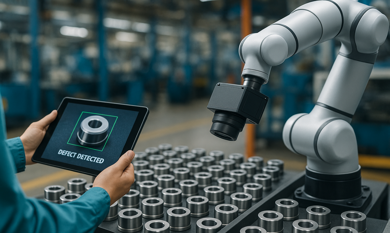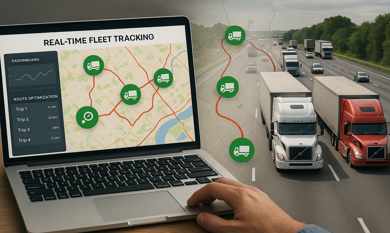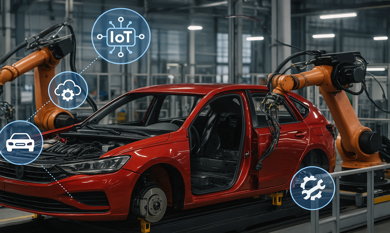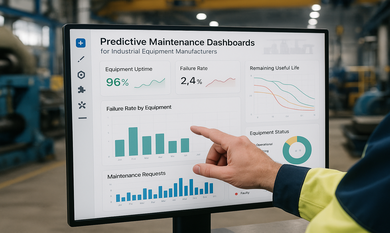The automotive manufacturing industry is changing quickly with the help of smart technology. One of the biggest drivers of this change is the Internet of Things (IoT). Simply put, IoT connects machines, tools, and systems so they can share information and make smarter decisions. For car manufacturing startups, using IoT can lead to better products, faster production, and fewer problems on the factory floor.
Let’s explore some top companies that are leading the way in IoT for the automotive industry and how they’re using it to stay ahead.

1. Bosch – Making Quality Consistent Across the Globe
Where: Germany, operating worldwide
How they're using IoT: Bosch uses connected tools and machines in its factories around the world. For example, they connect nut runners (tools that tighten bolts) to a central system. This ensures every car part is tightened just right, no matter where it’s built.
Benefits:
- Better quality control across different plants
- Real-time data helps spot problems early
- Reduced production errors and rework
2. Siemens – Managing Fuel Stations with IoT
Where: Germany, with projects in Europe
How they're using IoT: Siemens' MindSphere platform helps manage over 50 Natural Gas Vehicle (NGV) stations across Europe. Sensors collect data like temperature, pressure, and performance, all in real-time.
Benefits:
- Early warnings of technical issues
- Lower maintenance costs
3. GE Digital – Improving Gear Manufacturing in China
Where: USA, with operations in China
How they're using IoT: GE Digital helped Shanghai Automobile Gear Works (SAGW) transform its factory with a digital twin—a virtual version of the production line. This digital system tracks every step of the gear-making process.
Benefits:
- 20% more machine utilization
- 40% drop in inspection costs
- 80% less storage space needed due to better inventory management
4. Cisco – Smarter Production at Nissan
Where: USA, working with Nissan in Japan
How they're using IoT: Nissan teamed up with Cisco to improve their car production with automation and real-time monitoring. Machines and systems are connected using Cisco’s IoT solutions to track and control the process.
Benefits:
- Automated robots and machines work more efficiently
- Real-time problem detection prevents breakdowns
- The system kept running even during the COVID-19 pandemic
5. IBM – Predicting Maintenance for General Motors
Where: USA
How they're using IoT: General Motors (GM) uses IBM Watson IoT to collect and analyze data from machines in real time. This helps them know when a machine might fail, so they can fix it before it breaks.
Benefits:
- 15% less unexpected downtime
- Lower repair costs
- More efficient factory operations
6. Hitachi Vantara – Fast Data for Faster Decisions
Where: Japan, with projects in Germany
How they're using IoT: Blechwarenfabrik Limburg (BL), a tinplate packaging company working in automotive supply chains, partnered with Hitachi Vantara. They used IoT to track energy use, production speed, and equipment performance.
Benefits:
- Faster access to data (from weeks to seconds)
- €500,000 saved in energy costs per year
- Better resource management for sustainability
Why It Matters: Real Numbers Behind IoT Success
Here are some key statistics showing the power of IoT in automotive manufacturing:
- 47% of manufacturers have seen a 15–30% improvement in productivity after adopting IoT solutions.
- 30% cost reduction in predictive maintenance programs through IoT-powered data collection and analysis.
- Global automotive IoT market is expected to reach $541.7 billion by 2032, growing at a CAGR of over 18% from 2023.
These numbers make it clear—IoT is more than a trend. It’s a smart investment that brings real results.
Popular IoT Trends in Automotive Manufacturing

Here are a few key trends startups should watch:
1. Predictive Maintenance
Sensors on machines collect data like vibration, temperature, and usage. This helps spot problems early and avoid breakdowns.
2. Digital Twins
A virtual version of your factory lets you test new ideas before changing anything in the real world.
3. Smart Supply Chain
IoT improves tracking of parts, deliveries, and inventory levels, helping avoid delays and shortages.
4. Energy Efficiency
IoT tracks energy use and suggests ways to save power, making factories more eco-friendly and reducing costs.
5. Remote Monitoring
Factory operations can be checked in real-time from anywhere, making it easier to manage multiple locations or shifts.
Conclusion
For automotive manufacturing startups, embracing IoT is not just about keeping up—it’s about leading the way in quality, speed, and innovation. From reducing maintenance costs to improving product consistency, the benefits are clear and proven across the globe.
If you're planning to integrate IoT into your manufacturing operations, partnering with an experienced team can make all the difference. A reliable IoT app development company in Dallas can help design, build, and manage smart solutions tailored to your production goals. With the right technology partner, your startup can scale faster and compete with the best in the industry.

















.png)
























.png)



.png)



.png)




























.png)
.png)






.png)

.png)
.png)
.png)


.png)
.png)
.png)
.png)

.png)


























